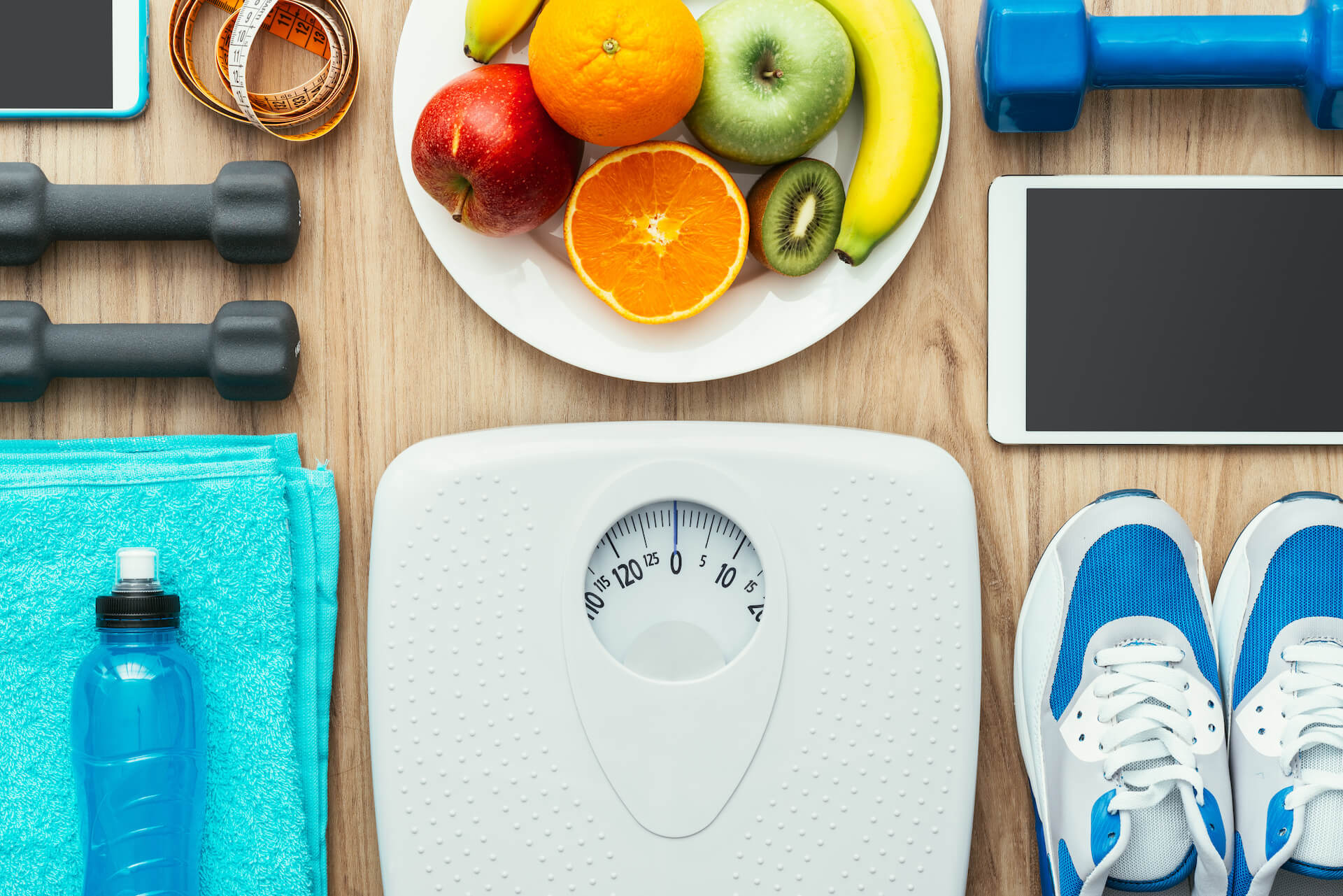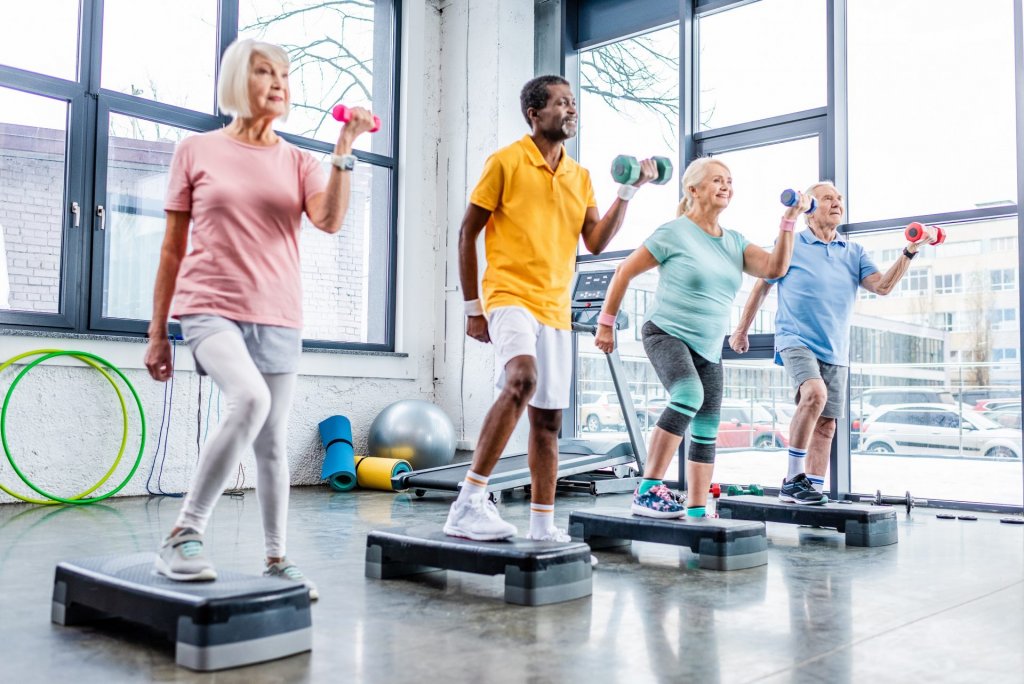
Beyond the Scale: How Body Composition — Not Weight — Reveals Your Health


“I need to lose weight!” How often have you repeated this statement to yourself over the years? It’s the conventional wisdom in our culture: The lower the number on the scale, the healthier your body is. Maybe you’ve even been told to lose weight by your doctor, personal trainer, fitness coach, or a friend or family member. Sometimes this advice is well-intentioned. Sometimes it’s not. But one thing is certain: Our obsession with the scale is doing us more harm than good.
The scale is not an accurate measurement of a person’s overall health and fitness. In fact, blanket advice like “lose weight” can actually lead to a loss of muscle mass, which can have dangerous consequences later in life. It’s time to rethink our relationships with the scale and bring our health into the 21st century. There’s a better way to measure your health, one that doesn’t involve feeding into a scale obsession.
Why Traditional Bathroom Scales Can’t Measure Real Health
Fifty years ago, every home had a rotary dial phone. They were simple and rudimentary machines, lacking features we now consider basic, like caller ID and voicemail. They were only good at making and receiving phone calls. Nowadays, smartphones can do everything that the rotary phone can, but it can also screen calls with caller ID, send texts and emails, host video chat sessions, let you browse the web and post to social media, change the channel on your TV, and even lower your thermostat or unlock your doors. It’s clear which piece of tech is superior in the modern age.
The common bathroom scale is like the rotary phone. All a basic scale can do is provide you with a single number: a few simple digits that represent the combined weight of your skeletal system, organs, muscles, water weight, and your fat. It cannot tell the difference between these parts or how much each element of your body composition individually weighs. The scale can’t measure the difference between muscle and fat
When we weigh ourselves, we automatically assign a worth and a value to the number we see. If it’s lower than normal, then we can feel good about ourselves. If it’s too high, then our whole day is ruined. But what does that number even mean? Remember that an analog scale can’t tell the difference between muscle and fat. When you step on an analog scale and find that the number has gone up or down, all this really means is that the sum of your body composition has changed somehow.
Weighing two pounds more than usual doesn’t mean that you’ve gained two pounds of fat. It’s possible that the scale is only picking up on the water weight from your morning cup of coffee. Those extra two pounds could reflect an increase in muscle, a sign that all your hard work at the gym is paying off. Likewise, dropping weight doesn’t necessarily mean that you’ve lost fat.
It’s entirely possible to lose weight, yet gain fat. You may have even lost muscle mass without realizing it. Without any additional information to tell you what this number represents, you’re completely in the dark about your progress. You might spend all day admonishing yourself for your “failure” to meet your health and fitness goals when you’ve done nothing wrong. Think about that for a moment: you’re allowing a 3-digit number to dictate your self-esteem, even when that number isn’t at all indicative of your overall health.
BMI Limitations: Muscle versus Fat

You’ve probably also heard that body mass index, or BMI, is a more accurate gauge of a healthy weight. However, BMI also falls short.
On average, muscle weighs more than fat due to its higher density. This is why measuring methods like BMI aren’t always an accurate measure of a person’s overall health. BMI only takes into account a person’s height and weight, not their overall body fat percentage. Many athletes are considered to be “overweight” by the standards of BMI. Yet because of their high amounts of strong, lean muscle and low body fat percentage, they’re healthy and strong. Likewise, it’s also possible to have a low BMI and a high body fat percentage due to an overall absence of muscle.
Relying solely on weight to measure your health can be dangerous for older adults. After age 40, our muscles naturally begin to atrophy. While it’s normal to lose some muscle to the aging process, an excess of muscle loss can cause sarcopenia, a loss of skeletal muscle mass. Sarcopenia can lead to mobility problems, balance issues and other health problems. Numerous studies have associated sarcopenia with an increased risk of cognitive impairment and Alzheimer’s disease.
If you’re using only the scale to make your health decisions, you could be promoting muscle loss in your body. You need to take your overall body composition into account. This is where 21st-century tech comes in.
Measuring Body Composition with Advanced Bio-Empedance Analysis
Just like the rotary phone has received a modern upgrade, so has the common bathroom scale. At Aviv Clinics, we use an advanced scale called seca to measure more than a person’s weight, but instead a precise breakdown of what that number means. The seca uses a mathematical formula to provide a comprehensive bio-impedance analysis, or BIA, of a patient’s overall body composition. This process can detect changes in a patient’s fat or muscle composition even when weight remains unchanged.
Advanced scales like these provide vital information that could never be obtained through a traditional scale. Getting a precise breakdown of a patient’s exact body composition allows health care professionals to develop a treatment plan for their patients, whether that involves losing body fat, gaining muscle, or a combination of both.
Building Muscle for Longevity, Cognition, and Healthy Aging
If your goal is to gain muscle, then your nutritionist will likely recommend a diet that’s high in nutrient-dense whole foods. Under-eating is the enemy of lean muscle. You need to ingest more calories than you burn so that your body can use the surplus for muscle-building.
For people who have bought into traditional dieting wisdom their entire lives, the idea of gaining weight on purpose can be terrifying. It can be incredibly difficult to let go of the negative connotations associated with weight gain. If you’ve lived your entire life assigning your worth and value to a number, then letting go of those feelings won’t happen overnight. It takes time and patience to change your mindset about the scale. Having good skeletal muscle mass increases cognition, boosts your immune system and metabolism, and reduces your risk of falling.
Watch: How Aviv Clinics Helped Zizi Build Muscle and Reclaim Her Energy
Zizi was one of those women. She balked when her Aviv Clinics nutrition coach recommended she consume more calories to gain weight. However, after learning about her body composition and following Aviv’s exercise and dietary recommendations, she has more energy than she’s had in years.
At the end of the day, your weight is only a number. And you are far more than just a number.
Aviv Clinics delivers a highly effective, science-based treatment program to enhance brain performance and improve cognitive and physical health. The Aviv Medical Program’s intensive treatment protocol uses hyperbaric oxygen therapy and includes other interventions, including nutrition management and dietary support for better brain and body health. Based on nearly two decades of research and development, the Aviv Medical Program is holistic and customized to your needs.
Is the Aviv Medical Program right for you and your healthy aging needs? Contact us to speak with one of our board-certified physicians.
Last Update: July 2, 2025
Aviv Medical Program provides you with a unique opportunity to invest in your health while you age.

